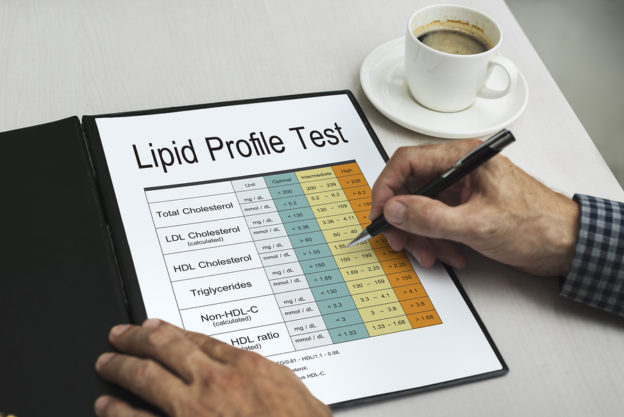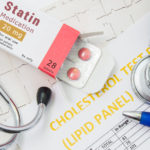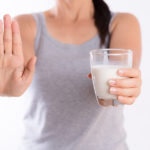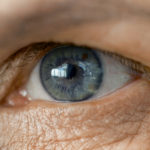By David Blyweiss, M.D., Advanced Natural Wellness
June 2, 2017
- Two very important numbers missing from the “Know Your Numbers” campaign
- Forget cholesterol. This is much more important.
- The #1 heart test everyone should get
These days, television commercials for pharmaceuticals have literally trained people to “know their numbers”. And in many ways, this is a good thing.
More than ever, patients come into my office and recite their average blood pressure readings, cholesterol levels and triglyceride count. This data often gives me a starting point when discussing their health concerns.
On the other hand, I find that the media attention on specific “numbers” tends to distract people from others that are much more accurate when it comes to your heart health.
That’s because cholesterol isn’t nearly as important as ad campaigns would have you think. In fact, most people who have heart attacks have cholesterol levels well within the normal range.
At the same time, there are a few measures that are much, much better at predicting your heart risk than cholesterol.
Open your arteries, improve blood flow for a new health miracle...
Did you know your circulatory system has over 60,000 miles of arteries, veins and other blood vessels, if stretched end to end?
But as you age, your blood vessels undergo changes, which may cause them to stiffen, thicken and get clogged.
GOOD NEWS! Doctors have now identified a “Miracle Molecule” inside your arteries that helps OPEN your arteries and IMPROVE blood flow.
It’s what Dr. Valentin Fuster calls it, "One of the most important discoveries in the history of cardiovascular medicine."To you, that means...
- Healthy blood pressure
- Sharper mind and memory
- Skyrocketing energy and muscular strength
- Increased pleasure and passion in the bedroom
- Improved circulation to every cell and organ in your body
Go here to discover a new natural way to significantly boost the levels of this miracle molecule in YOUR body NOW!
Forget Cholesterol. This is Much More Important.
You might be surprised to learn that LDL and HDL are not actually cholesterol. Rather, they’re carriers that transport fats, proteins, cholesterol and triglycerides through your bloodstream.
Now, a typical cholesterol screening tells you how much cholesterol these lipoproteins are hauling around. But that’s not what’s important. Instead, what we should be looking at is the size and number of the carriers.
You see, some LDL particles are large, fluffy and buoyant. This kind is harmless.
But others are small and dense. These are the kind you have to watch out for. They can easily enter your arterial walls and become trapped. This sets off a chain of events that result in blockages and narrowed arteries.
This makes “particle size” a very important number when it comes to your heart health.
The number of LDL particles circulating throughout your bloodstream is just as critical. And unfortunately, there’s a substance that increases the number of artery-clogging LDL particles you have.
The World's Quickest Solution for Ending Prostate and Urinary Misery
This has recently been revealed to be one of the only real breakthroughs in prostate health.
The seeds of a strange fruit (sometimes called "Chinese Apples") hold powerful phytonutrients that are a revolution in prostate health.
In fact, UCLA and Veterans Administration research have now proved this to be true.
Not only that, but it may be the worlds quickest solution for ending prostate misery.
Simply stated, these phytonutrients represent a huge step beyond beta sitosterol, saw palmetto, and other phytosterols alone.
Simply click HERE if you want to have fast prostate relief...restful, uninterrupted sleep...no more constant "urges to go"...enhanced virility...and optimal prostate support for life.
It’s called apolipoprotein B (apoB). Today it’s considered the top predictor of heart health. This type of protein is attached to the surface of LDL particles. It’s highly atherogenic and promotes plaque build-up in your arterial walls.
And here’s something I’ll bet you find extremely interesting:
You can have ideal LDL levels. You’re doctor might even pat you on the back and tell you to “keep doing whatever it is your doing”. But you can still have high concentrations of apoB and LDL particles. This makes regular cholesterol screening practically useless.
The #1 Heart Test Everyone Should Get
Ask your doctor for an advanced form of lipoprotein testing, called Vertical Auto Profile (VAP). Among other things, this test will measure your apoB levels and tell you if your LDL particles are the small dangerous one or the large harmless ones.
In the meantime, there are several things you can do to boost your LDL particle size and lower apoB levels.
A high carb diet increases concentrations of the small, dense LDL. Simple sugars and starches high on the glycemic index are the worst offenders. This makes it a good idea to stick with a low glycemic diet that zeroes in on healthy fats, proteins and plant-based carbs.
Supplementing with niacin can have a specific effect on the smaller, more dangerous LDL particles. Start on a low dose, about 50-100 mg daily. Then slowly add 100 mg each week until you’re up to 1,000 mg each day. Take it in divided doses over the course of the day. (If the flush bothers you, take an 81 mg coated Bayer aspirin just beforehand.)
Don’t forget to exercise. Regular exercise significantly reduces atherogenic apoB levels. Go for high intensity interval training for best results. It’s easy enough to get started. Just make sure to get approval from your doctor first.
Once you have the go-ahead, begin by walking briskly for 30-seconds. Simply walk as fast as you can. Then, slow down and spend three or four minutes walking regularly. Repeat four to six times.
When it gets easy to do this, change the brisk walk portion to a slight jog. Later, if your body allows, you can build up to a sprint. The key is to consistently increase intensity and take shorter amounts of time at a regular pace. This same tactic works for bicycling, rowing, swimming and other activities.
Supplement with 600 to 900 mg of pantethine daily. This biologically active form of vitamin B5 derivative can slash apoB levels by 8% in as little as 12 weeks.
SOURCES:
Miedema MD, et al. Statin Eligibility and Outpatient Care Prior to ST-Segment Elevation Myocardial Infarction. J Am Heart Assoc. 2017 Apr 12;6(4). pii: e005333.
Walldius G, et al. The apoB/apoA-I ratio is better than the cholesterol ratios to estimate the balance between plasma proatherogenic and antiatherogenic lipoproteins and to predict coronary risk. Clin Chem Lab Med. 2004;42(12):1355-63.
Furtado JD, et al. Effect of protein, unsaturated fat, and carbohydrate intakes on plasma apolipoprotein B and VLDL and LDL containing apolipoprotein C-III: results from the OmniHeart Trial. Am J Clin Nutr. 2008 Jun; 87(6): 1623–1630.
Holme I, et al. ApoB but not LDL-cholesterol is reduced by exercise training in overweight healthy men. Results from the 1-year randomized Oslo Diet and Exercise Study. J Intern Med. 2007 Aug;262(2):235-43.
Morgan JM, et al. Effects of extended-release niacin on lipoprotein subclass distribution. Am J Cardiol. 2003 Jun 15;91(12):1432-6.
Evans M, et al. Pantethine, a derivative of vitamin B5, favorably alters total, LDL and non-HDL cholesterol in low to moderate cardiovascular risk subjects eligible for statin therapy: a triple-blinded placebo and diet-controlled investigation. Vasc Health Risk Manag. 2014 Feb 27;10:89-100.







